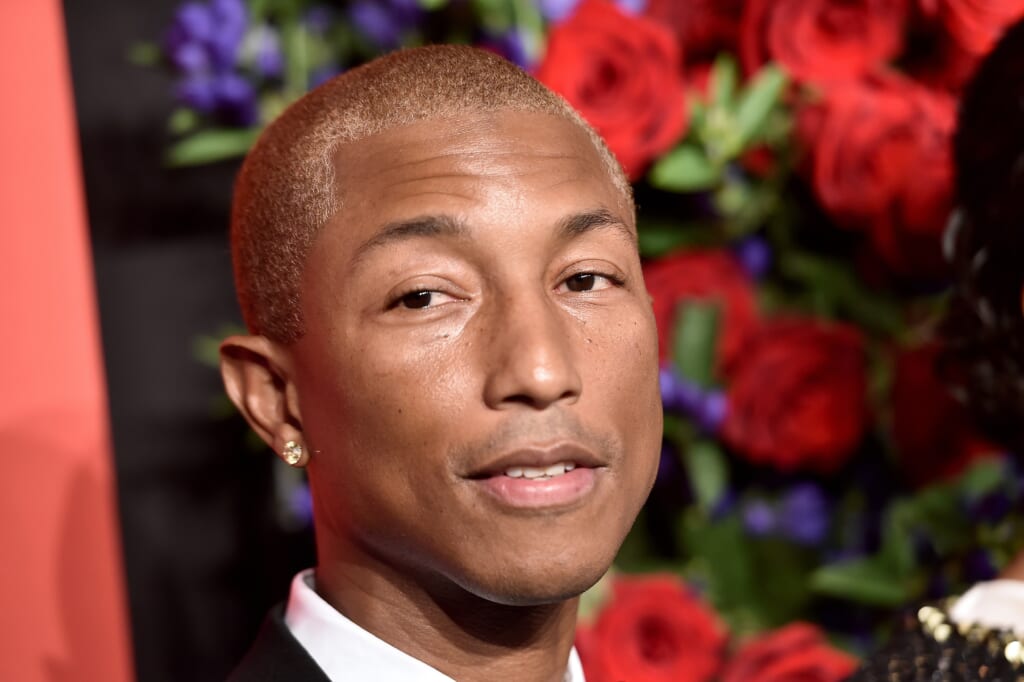Pharrell speaks on building access in the next five years alongside Black activists
'Why [Black Americans] don’t have enough of a voice is because we don’t own enough of the pie--the American pie,' the producer says
Pharrell Williams took part in a phenomenal panel discussion about ways to ensure that leaders of color have equitable access to resources on Thursday.
The panel was a part of the Walton Family Foundation’s virtual conference “Learning & Leading Together: The Next Five Years,” which is convening thought leaders and changemakers to generate ideas, inspire collaboration and advance solutions for durable, community-driven change.
Read More: Pharrell Williams did not commit perjury in ‘Blurred Lines’ lawsuit, judge rules
Pharrell was joined by Liz Thompson, a philanthropist, and Cheryl Dorsey, a social entrepreneur leader who served in two presidential administrations, to talk about how breaking down these barriers is key to achieving equitable access.
Throughout the panel, Pharrel discussed the impact of his organization, Black Ambition, and how it is strengthening the pipeline of talented entrepreneurs and closing the opportunity and wealth gaps derived from limited access to capital and resources.

“There are 30 million African Americans in this country, we’re less than 13% [of the population] and oftentimes, our voices are used to benefit other industries but aren’t used to benefit us as entrepreneurs,” emphasized Pharrel, when explaining the foundation of his organization, Black Ambition.
He continued, “Oftentimes, we don’t have enough of a voice. And why we don’t have enough of a voice is because we don’t own enough of the pie—the American pie.”
This panel illustrated the barriers that BIPOC experience when it comes to access to funding—private and philanthropic. Pharrell broke down three pillars that identify the disparities and inequalities that people of color face.
“There’s disproportionate access to education. There’s disproportionate access to healthcare and medicine, and there’s disproportionate access to legislation—essentially, representation,”Pharrel asserted.
Structural inequities not only prevent the advancement of solutions developed by people most proximate to the communities being served, but they also perpetuate harmful biases in the system.
Social entrepreneur Dorsey discussed the importance of HBCU graduates and having Black teachers in the classroom that help train and create a pipeline of future generations of leaders.

“We’re searching for next-generation leadership that is pressure-testing, pushing back against the status quo, reimagining what tomorrow can look like,” said Dorsey. “A lot of that reimagination is going to happen with BIPOC leaders who are going to pull us into the multicultural society that we need to be.”
“There’s a shorthand that comes from a teacher looking a child in the eyes that looks like them that says, ‘I know you, I am you. I’ve been where you’ve been and you can go where I’ve gone,’” Thompson said on the need for an expansion of Black and brown teachers across the country.
Dorsey also discussed the groundbreaking research she conducted with Echoing Green and Bridgespan Group that revealed that race remains a defining factor when looking at which organizations get funded and how much they receive.
Read More: Pharrell Williams launches Black Ambition initiative for Black and Latino entrepreneurs
“When you see the numbers they’re indisputable and it’s just a reminder of how far we have to go and why this conversation around access is so critical,” Dorsey emphasizes when discussing the impact of her recent report.
Dorsey left the audience with pivotal advice on how to make an impact towards a path forward. She emphasized the importance of promoting a lasting change, and that we have to unlearn the misinformation we were taught for decades.
To learn more about Racial Equity and Philanthropy: Disparities in Funding for Leaders of Color Leave Impact on the Table, listen to the full conversation here.
Have you subscribed to theGrio’s new podcast “Dear Culture”? Download our newest episodes now!
TheGrio is now on Apple TV, Amazon Fire, and Roku. Download theGrio today!
